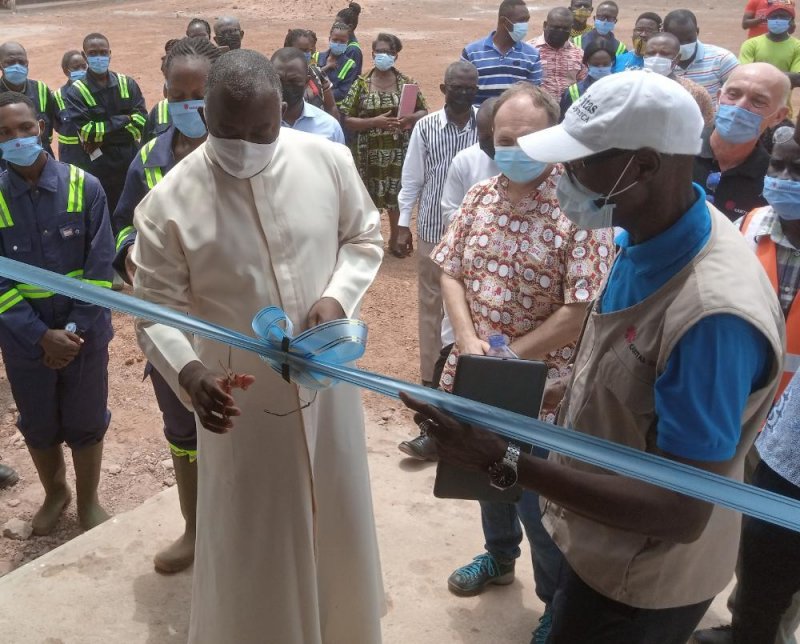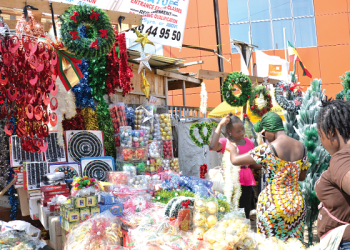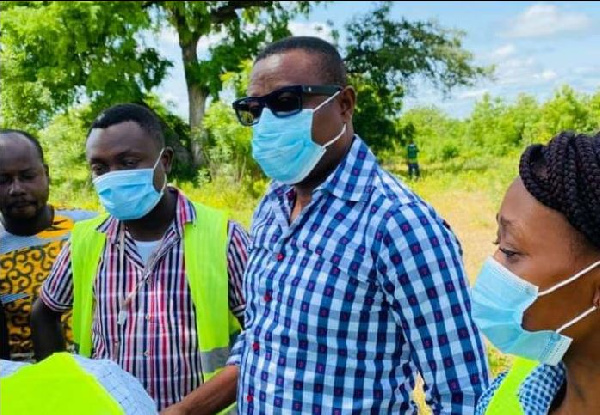A Plastic Preprocessing Plant has been set up in Tamale to help in plastic waste management in the capital city of the Northern Region.
Plastic waste in the Tamale Metropolis will be collected and preprocessed at the plant and sent to other factories in Tema for processing into finished products such as buckets and other plastic products.
The plant can process 1000 kilogrammes of plastic waste in a day.
It has been set up by Caritas Ghana, a charity organisation of the Ghana Catholic Bishops’ Conference, as part of its “Care for our Common Home” campaign with support from the German Development Cooperation (GIZ) under its Sustainable Management and Disposal of E-waste in Ghana project.
Most Reverend Philip Naameh, Metropolitan Archbishop of Tamale, who spoke at the opening and blessed the facility in Tamale on Wednesday, said the setting up of the plant would not only address environmental challenges but also create jobs, especially for young girls.
Already, 20 young people have been employed to work at the reprocessing plant.
Most Rev Naameh spoke about efforts being made by the Tamale Archdiocese in the area of waste management saying “The first initiative under the “Care for our Common Home” campaign, which the Tamale Archdiocese implemented in partnership with Caritas Ghana, was the electronic waste collection centres in Tamale, which were commissioned in February 2020. The Archdiocese’ plans are now to expand this initiative with more E-waste collection centres as well as include plastic collection and processing.”
He said, “While these plants will focus on addressing environmental problems of pollution from burning the hazardous materials, the Tamale Archdiocese and Caritas Ghana also seek to create green jobs for the youth.”
He emphasised that “These plants will address two important challenges confronting the country in general and Northern Ghana, specifically namely, protecting our environment from plastic pollution, and youth unemployment resulting in rural-urban migration.”
He said the Tamale Archdiocese was excited about the project and would work towards ensuring that the plant was constantly fed with plastic waste, which was gradually taking over the farmlands, water bodies and often causing flooding.
According to the Waste Management Department of the Tamale Metropolitan Assembly (TaMA), about 500 tonnes of waste are generated every day in the metropolis.
Most Rev Naameh, therefore, appealed to the government and its agencies to lend their support to the Tamale Archdiocese to help solve the twin problems of sanitation and youth unemployment in the country.
Mr Markus Spitzbart, Head of Programme, Sustainable Management and Disposal of E-Waste in Ghana project of GIZ said the setting up of the Tamale Plastic Preprocessing Plant was part of efforts by the GIZ to ensure sustainable waste management in the country.
Mr Spitzbart was happy that the project had been extended to the northern part of the country, expressing hope that it would help create jobs to stem migration to the south for jobs.
Mr Martin Ahorlu, Head of Waste Management at the TaMA said sanitation management was a shared responsibility and lauded the initiative saying it would go a long way to address issues of sanitation in the metropolis.
Mr Ahorlu assured Caritas Ghana and GIZ of the readiness of TaMA to support the project to remain sustainable to help clean the metropolis.










Discussion about this post